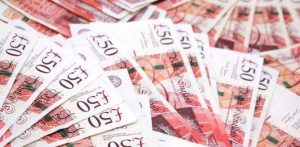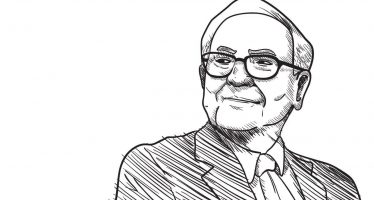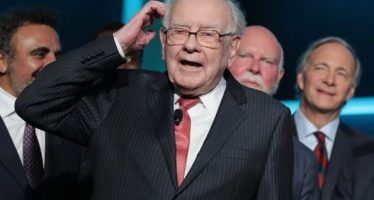Money for Nothing
 From a mere medium of exchange, money has turned into a pixie dust that, sprinkled liberally, brings economies to bloom and wards off evil thoughts and spirits.
From a mere medium of exchange, money has turned into a pixie dust that, sprinkled liberally, brings economies to bloom and wards off evil thoughts and spirits.
The idea that coin is just a more refined and convenient form of barter no longer has much currency. Likewise, the notion that money has a price is rather old school.
Just 50-odd years ago, double-digit interest rates were considered normal. It was the cost of Keynesian largesse to be settled once an economy had regained the ability to sustain its own forward motion. Since then, however, money has lost most of its value. Whilst the buying power of cash remained largely unchanged, its yield decreased to almost zero and sometimes dipped below that floor.
The sudden, universal, and forceful impact of the corona pandemic has shredded the rulebook that framed economic science – a pursuit that even in the best of times fails to offer the comfort of certainty. Economists have been alternately hailed and exposed as masters of a dark art who provide a bespoke roadmap to the rabbit hole that unlocks a magical wonderland where everything seems possible though nothing is real.
Imagine a world where governments can spend at will because their central bank provides unlimited credit. It is what US Federal Reserve Chairman Jerome H Powell yesterday clarified during a video conference with lawmakers: there is essentially no limit to the financial fire power of the central bank. In that universe, austerity becomes an exercise in masochism. Money – its creation, application, and regulation – has apparently transcended economic theory.
The Institute of International Finance, a trade group of banks charged with mapping systemic risk, has calculated that the global volume of debt is set to rise from $255 trillion to $325 trillion during the course of the year. Classicists who dare express concern over this level of indebtedness, are booed off the stage and denied a platform. A new taboo has been instituted as well: the ‘W-word’ is not to be mentioned. Anyone deriving lessons from the Weimar Era must be silenced. As the outward symptom of an underlying affliction and the canary in the coal mine, inflation is only of interest to historians who – as a class – must be confined to their ivory tower whilst the ‘money boys’ work their magic.
Yet, this new wonderland where trillions may be spent without much thought is also a potentially dangerous place. Much like the virus doing the rounds, it is both novel and uncharted. There are no case studies to provide meaningful guidance. Common sense fails as well. The recent rally of the stock market illustrates that profit and revenue are no longer determinants of price. Strangely, there is some comfort to be had from the first rule of economics – one of the few still standing – which holds that the value of any given product or service is determined by what a fool is willing to pay for it. Buyers, not sellers, set the price.
Here’s another timeless wisdom. Asked how he went bankrupt, Ernest Hemingway summarised: “Two ways. Gradually, then suddenly.”
Europe is, arguably, the most interesting place to watch the unfolding of the Corona Recession and the response of both individual countries and the supranational European Union. Whilst the Americans may enjoy their exceptionalism as controllers of the global mint, and China can revert to its command economy, Europe must break new ground. And it has. The corona pandemic seems to have broken the opposition to a fiscal transfer union.
Prior to the outbreak, a few frugal countries in northern Europe with holier-than-thou attitudes to state finance, tried and succeeded in proving the venerable John Maynard Keynes (1883-1946) wrong. In the midst of an economic downturn, they doggedly stuck to austerity. Expenses were ruthlessly slashed and labour costs curtailed. Consumers got told to forget about instant gratification: No Porsche Cayenne for you because that thing needs to be exported with credit provided by our banks using your money.
Following that, budgets swung into black and debts were paid down or swapped for paper carrying a negative interest rate, turning a liability into an asset. Even so, the unholy urge to expand the holdings of such a lucrative asset was repressed.
Other EU member states failed to see the logic of this approach and kept up their spending levels even after one of them – Greece – overdosed on the financial Kool-Aid. The pandemic currently lashing the union has exposed a curious paradox: one the one hand, all actors turned open the spending taps as far as the spigot goes whilst on the other hand, some of yesterday’s big spenders now clamour for access to the hard-won excess savings of their more frugal fellow EU members who must – so they say – show true solidarity.
This may have been the last stand of the classicists, that seemingly out-of-touch and slightly esoteric bunch of economists insisting on a strict adherence to common sense. Earlier this week, Germany agreed to a French proposal that introduces eurobonds in a roundabout way and opens the gates to a future of debt and risk mutualisation. It is hard to overstate the revolutionary nature of this plan hatched by one of the continent’s least popular presidents and green-lighted by a chancellor ready to depart office.
The Dutch, probably the stingiest of the frugal, have been shell-shocked into submission and no longer offer resistance other than a rear-guard fight to limit the damage. The Austrians, Danes, and Swedes mumble objections but realise full well the futility of opposing the Germans who, again, succumbed to the supposed moral superiority of the French. After three quarters of a century, Paris still somehow manages to subtly invoke history to trump Berlin.
Gradually, then suddenly: Europe has embarked on a novel course through wonderland and seeks to prove John Maynard Keynes right after all. A recession is fought by a spending splurge. It worked in the past and should do so again. The novelty concerns both the size and scope of the exercise and the fact that old rules regarding the cost of money and the setting of prices no longer seem to fully apply. What happens to Keynesianism when exposed to New Monetary Theory (NMT) is anybody’s guess.
The lure of NMT is powerful indeed: ‘money for nothing’ (the free chicks have been scrapped at the request of #metoo) until all resources are fully deployed and inflation kicks in. The trouble for Europe is that the continent’s main economies have delegated their prerogative to print money to the European Central Bank.
This is not a scenario considered by new monetary theorists. In order for NMT to work and provide future bliss for all, the present currency union must be expanded to include a tightly integrated fiscal vector so that the Eurozone becomes one and its central bank can rule without taking into account disparate and often opposing opinions on the management of monetary affairs.
Germany’s apparent capitulation to France heralds the dawn of a new era for Europe. It also introduces an added layer of uncertainty. Whilst there is broad agreement that the economic rubble left by the pandemic requires a large financial bazooka to clear, the long-term consequences of smothering economies in pixie dust are unknown. Money for nothing is, perhaps, the white rabbit’s latest incantation.
You may have an interest in also reading…
Business in Times of Corona: Wise Words from Omaha
The life lesson imparted by the Oracle of Omaha does not require much deciphering: Cash is King. Long criticised for
When Even Warren Buffett Is Clueless
You can bet on America, says Warren Buffett, before admitting that even he does not know what comes next. The
Poland Closes the Gap and Calms Covid Jitters with a Bold Programme of Reform
The pandemic has brought an end to its 30 years of GDP growth for Poland — but this should be


















































































